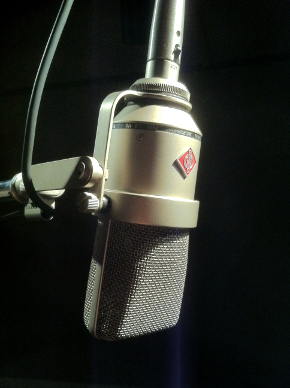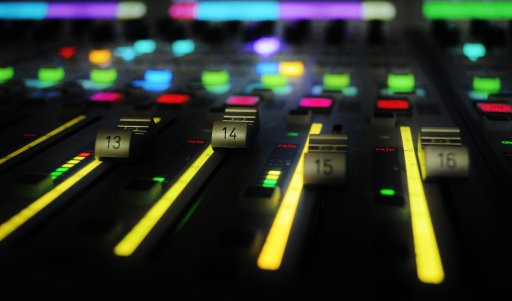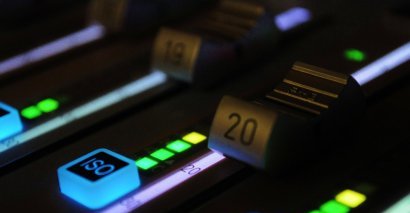Session Files: "Throughput"
The Odd Business of Creating Music in Recording Sessions

I've been musing over the unusual learning and performing habits I've been forced to develop in order to pull off the recording sessions I work. As I have mentioned in a previous article, I am something of a "sweetener" or "finisher." This job I am often asked to perform involves taking an unfinished multitrack project that "isn't working" and do whatever is necessary to "make it work." This isn't the standard "in for three hours and on to the next" union session work. I often find myself simultaneously wearing the hats of producer, recording engineer, and performer - quite a stack of chapeaus. I typically inherit the mutitrack wave files from the initial sessions and a trial mix. After listening to the mix, I'll decide what is missing, superfluous, or out of balance. I rewrite drum parts and/or replaced drum sounds and other instruments that don't contribute. If something is missing, I supply that element, either by performing it or by bringing in another musician to supply it. That can range from recreating the entire groove of the song to supplying fills, rhythm parts, or vocals. Once the piece has everything it needs, I mix the final work and prepare it for use in the project.
During this arcane process I'm often on a very short deadline for the piece of music to be delivered. As a result, I often hear the music, formulate a plan, write and rehearse the parts, track them, and mix the product within just a couple of days. If there are solos to be improvised the lead time is often shorter than that. It is a pretty regular thing for me to go into the studio with little or no idea what I'm going to play over the piece. I set up the gear, get a sound, and then run down the piece a few times while I "feel" my way into a solo. Some solos I play right through. Others suggest themselves bit-by-bit as I go along - I'll "find" the first part and then things will come unglued. Keeping the take of that first part I'll "find" the next part. Keeping those parts, I'll add another section. By the time I get through the first few parts I may have come up with a better intro so I go back and slot that in. After I come up with a good entire solo through this process, I may go back and perform all the parts together as a whole to give it a more organic flow. In fact I usually do, because the segements never seem to connect as well when performed separately as they do when performed through from front to back. If I have the time I may begin the project one day, wake up in the middle of that night thinking of ways to approach the instrumental work, and then apply those ideas to the recording the next morning. It's funny how these things occur to me either as I sleep or nod off. But to be honest, I most often perform just improvised solos right off the cuff, day of, to give them as much immediacy as possible.

A funny thing happened recently that pointed out to me the fleeting nature of all this work: a friend came into the studio to hear what I was up to the day after I had finished a couple of pieces. He heard the tracks, liked my parts, and asked me to show them to him. I grabbed a guitar and started to demonstrate but discovered that I didn't know my own parts. I had to quickly re-learn my own guitar parts right there on the spot to demonstrate them to him.
That is where I got the idea to call the process "throughput," because whatever the "put" is, it isn't staying "put." I often create, learn, perform, and forget, all in a very short span. If I need it again it is back there in my memory somewhere and I can bring it back. The whole process reminds me of descriptions of the way bands lived in the '70s: They would spend the vast majority of their year performing on the road. After a short break (or not) they'd go into the studio and bring together whatever they had been fiddling with in their odd moments and create their next album in a short amount of time. Over and over again I heard from the guitarists that they had left the studio to rehearse for the next tour and during the rehearsals discovered that they had to learn their own songs and solos because they had been forced to create them under time duress and had never played the parts contiguously and really "learned" them.* This is why sophmore albums were quite often not as good as the band's first: they'd spent a lifetime writing the first but after its success and a year on the road, they only had a short time to come up with the second.
And that reminds me: When I was a young buck I read these stories and always harbored deep inside of me a fear that one of my bands might actually have a hit that was created on the spur of the moment like this. If we did, I might have to play this same song with these same parts every night for the rest of my life, whether or not I liked it and whether or not I was bored with them or had moved on in my skill level, style, or interests. That seemed a pretty horrible fate to me. I guess a VERY bright spot to this studio throughput process is that I am allowed to create and perform like this and the product quickly goes into the CD, DVD, or broadcast - someone else's product. It becomes a record of where my creative abilities were at the moment but my fears of the past have been assuaged: I needn't fear having to play these same parts for the rest of my life because tomorrow I am on to another part!
And here is an interesting comparison/contrast: The type of learning going on in this business of throughput seems far different from, yet strangely related to, the type of learning one would invest in a typical solo fingerstyle piece. While I might spend a year developing, learning, perfecting, and polishing a solo fingerstyle piece before playing it for a live audience, I've only got perhaps a few hours to accomplish the whole process in the studio. Despite this, the end goal is amazingly similar. We have the same goals of developing rhythmic precision, dynamic expression, and emotional expression, but the time available for the process is extremely telescoped. I'd be interested to hear what psychological mechanisms are different between these processes, whether there are any ways to improve them, and whether they are far different, complementary, or much more related than they appear to be.

How do you handle the time pressure when the red light is on and the clock is counting down to the delivery deadline while trying to be precise and creative? Those external pressures can make it hard for you to connect to the music and to come up with a performance and/or solo with emotion and feeling. I'm reminded of the Navy pilots trying to land on a carrier at night - one of the most stressful flight situations there is. Often in rough weather, the only difference between success and failure is confidence. The creeping specter of doubt and panic as the plane begins to run short of fuel can often make it impossible for even a good pilot to execute a good trap (landing). A quick sip of fuel from a tanker can often give the pilot just the confidence boost he needs to pull off the landing. I've learned that the same is true of recording. While the results of a session aren't live or die like a Navy pilot's approach, red light stress and that little mote of panic that occurs while you watch the clock wind down can destroy your ability to perform with feeling and drive and can even make it hard to get the job done at all.
What practical steps do I take when developing a solo or struggling with a performance on a time crunch? I've developed some of my approach while working as a producer/engineer with musicians and actors in the studio. Folks performing in the recording room have their hearts out on their sleeves. Their confidence can very easily be shaken or crushed by a casual comment from a bandmate, producer, or engineer. The person in charge of the session has to take steps to relieve that pressure and bolster the performer's confidence. When you are wearing all the hats, you really have to wear all of them. The producer in you has to provide the performer in you the space to create, and build him up to his best performance. It doesn't matter that they are the same person. First off, somewhere along the way I developed the technique of taking a few seconds to empty my head, get into the song, and allow myself a couple of run-throughs without any internal demands. Then I start buckling down to the task, digging in to find what I can offer while simultaneously working on precision. All along, I as producer provide myself the internal positive reinforcement and optimism to get over any hurdles I experience and execute my goals. My internal dialog is always positive: "Almost - almost there. That was nearly perfect!" rather than, "Crap, I missed it again!" I get an overdub rhythm going and encourage myself through each little step, acknowledging each little achievement towards the goal in my head until I get there. And when I get there I QUIT. I don't beat myself over the head and try for more perfection, but instead listen to the element in context and decide whether it is "good enough." It is very easy to work a piece to death, honing your precision until the emotion and/or fire is extinguished. You need to be able to develop the ability to find the compromise between your most precise performance and your best emotional performance, to push yourself in the direction the song needs. Toward that end, do not erase takes! If you go too far you can back up.

And that brings up development of feel in the song. Let's be honest: the studio process can be a bit, um, sterile. By contrast, every song has an emotional dialog with the listener that you are trying to either establish or feed. As a producer, you have to discover that emotional spark, latch onto it, surf it, and work to achieve its goal. It isn't a totally "romantic" sort of discovery, all heart and no brains, but instead, involves your brains being informed by your heart. One factor that we need to get a handle on is that our emotional expression rarely feels as full to those outside us as it does within us. I learned this in voice acting work - when you feel like you are "there," at the right level of emotional expression, you probably need to push a little further and gve it more emotion in order to move that emotion from inside yourself to the outside and communicate it to the audience. It is very much akin to acting in that you may have to put on a "persona" in order to pull out the emotions the song needs. For me it is far easier to pull back than it is to push up in the first place, so I always work on delivering enough emotion first and then reel it back in if necessary.
Well, there are a few of the concerns that go into creating music on a deadline in the studio and some of my thoughts on juggling the pressures involved with a session. Learning to get a handle on the various factors and the struggle within yourself and learning to push yourself and balance things off can be the key to getting good results that please your clients and give you satisfaction as well. Go out there and make a great recording!
* UPDATE 09-21-2015 I just was reading a Guitar Player Magazine article with Steve Lukather about their 25th Anniversary - Live in Poland video. Steve mentioned this very thing. They brought back their old song, "I Won't Hold You back Now" for the 2014 tour and he wanted to reproduce the lead that was familiar to the audience, only to realize that they had never played the song live, even on the original album tour in 1982. Also, it was an improvised solo, so he had to go back and learn it in order to reproduce it!
= =
=




